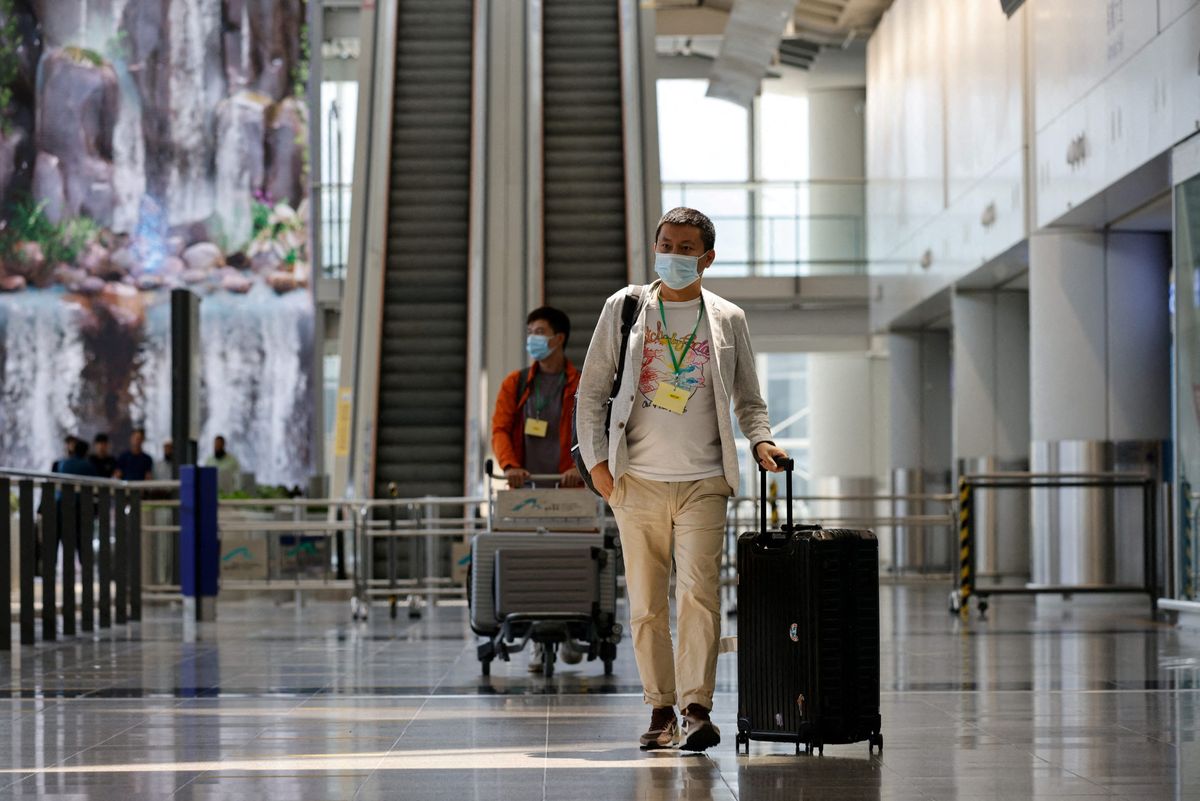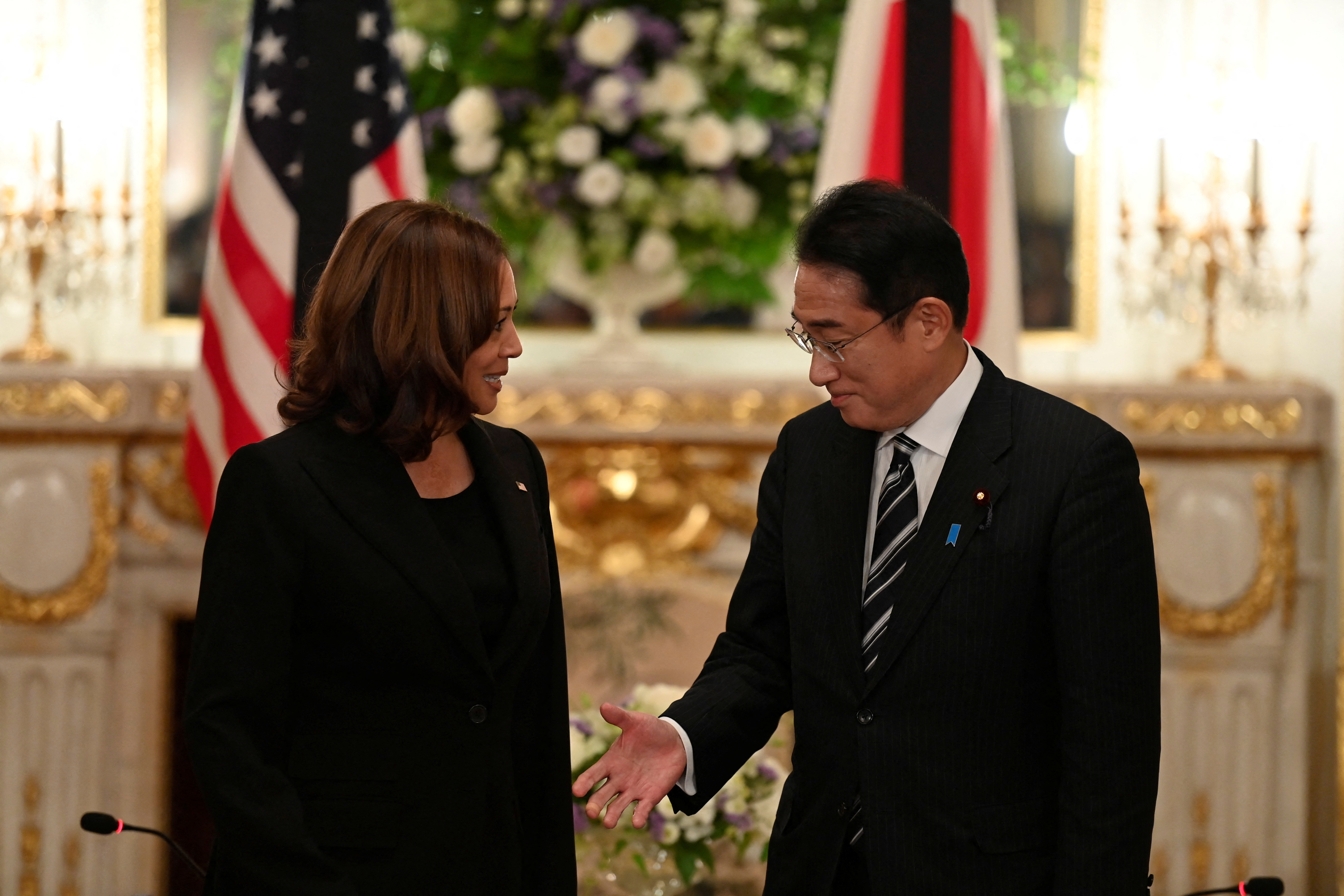From a push to reopen Hong Kong to chucking puffins off a cliff – Here’s your September 27 news briefing

A few minutes every morning is all you need.
Stay up to date on the world's Headlines and Human Stories. It's fun, it's factual, it's fluff-free.
To start off, we’re looking into:
Is Hong Kong ready to reopen?
Recently, Japan said it would reopen its borders in October, and Taiwan also plans to ditch its mandatory quarantine in a couple of weeks if it’s passed the peak of its latest omicron BA.5 outbreak. Hong Kong has had a mandatory hotel quarantine for international travelers for over two years. But there’s been a lot of pressure to reopen up to tourism.
Last Friday, Hong Kong’s Chief Executive John Lee announced that infection numbers have stabilized, which means the city can remove the quarantine. And yesterday, if officially lifted the hotel quarantine for foreign travelers.
Now, arrivals have to monitor themselves for three days once they come into the city, and they’re barred from bars and restaurants. They must also take COVID tests throughout their first week in Hong Kong. Then, if they test positive, they have to self-quarantine for seven days. Already, travel companies are reporting 10 times the amount of requests coming in. With this step, the city’s businesses are calling for a clear plan to fully reopen and get Hong Kong back to normal.
The US and Japan talk Taiwan

Following Japan’s surrender after World War II, the US and Japan developed a strong relationship and have become allies. And yesterday, US Vice President Kamala Harris visited Tokyo and spoke with Japanese Prime Minister Fumio Kishida at Akasaka Palace. She was leading a US delegation for former Prime Minister Shinzo Abe’s state funeral and plans to visit South Korea while she’s in the region. Her visit comes just a few days after US President Biden’s pledge to defend Taiwan if China invades the island.
During their meeting, the two talked about their concerns over China’s military activity in the Taiwan Strait. Vice President Harris also confirmed the US’ “ironclad commitment to Japan’s defense." The two countries condemned North Korea’s recent missile launch, and Harris also praised former Prime Minister Abe as a champion of the US-Japan Alliance and a free and open Indo-Pacific.
Snowden gets Russian citizenship

Nine years ago, Edward Snowden leaked a bunch of info about how the US and British governments were spying on ordinary citizens, even if they weren’t actively suspected of doing anything wrong. He got in trouble over it and is facing espionage charges in the US. So, he fled to Russia, where he’s been living all this time, essentially as a refugee.
But he’s not a refugee anymore. On Monday, Russian President Vladimir Putin granted Snowden citizenship. He got permanent residency in the country back in 2020 and has been working on getting citizenship since then. He is also keeping his US citizenship, saying he’d like to return to the US eventually, so he and his wife are not separated from their son.
According to his lawyer, Tass news agency reported that Snowden isn’t at risk of getting pulled into Putin’s new “partial mobilization" of Russian troops because he doesn’t have Russian military experience and isn’t in the reserves.
To end, we’ll look into:
Are deepfakes ethical?
Back in 2018, former US President Barack Obama said that “Killmonger was right,” referring to the villain in “Black Panther.” He also said that conservative US politician Ben Carson “is in the sunken place” and that “President Trump is a total and complete dipshit.”
Except President Obama didn’t really say any of these things – comedian and filmmaker Jordan Peele did. But with the help of artificial intelligence and a pretty good impression of the president, it really looks like Obama is saying it himself. The clip wasn’t meant to be a scandal, but instead, it was a PSA that we can’t always trust what we see and hear these days.
Flash forward four years, and these deepfakes (the term for AI-adjusted videos that make people look like they’re doing or saying things they’re not) are becoming even more popular. On TikTok, videos of Tom Cruise playing the guitar or taking bathroom mirror pics shirtless have become popular. And on “America’s Got Talent,” a long-running reality TV contest in the US, Elvis Presley appeared on screen to sing to the audience, with the actual singers sitting just backstage.
Now that they’re getting better, though, it’s time to buckle down on the ethics for this tech. It doesn’t take a giant leap to imagine people using it to defame someone or spark outrage by making it look like a political figure said things they didn’t say.
According to Tom Graham, one of the co-founders of deepfake company Metaphysic, “The most salient point is around consent.” But he recognizes this has issues, too, saying, “How do you withhold that consent in a virtual environment where suddenly someone has your data, and it doesn’t take a huge amount of data in order to create a synthetic representation of you?”
There’s no golden bullet for this kind of problem, but it’s probably safe to say that the “move fast and break things” model could be particularly explosive in this industry. However it goes, though, we should all get used to second-guessing everything we see on the internet.
In other news …
📉Stocks: MSCI’s global gauge of stocks is down 1.23% to 2,408.44.
📰Some specifics:
- S&P 500 is down 1.03%, hitting 3,655.04.
- Nasdaq Composite slipped 0.60% to 10,802.92.
- Dow Jones dropped 1.11% to 29,260.81.
- Hang Seng Index is down 0.44% to 17,855.14.
🧠Some quick factors to bear in mind:
- The Fed’s 75-basis-point interest hike to fight inflation has left traders hesitant. Central banks worldwide are raising interest rates, too, which could tip the global economy into recession.
- The Fed’s hike alongside recent UK tax cuts showing a return to “trickle-down economics” have made the US dollar surge in value, which can hurt the profits of US multinationals and affect global trade, as much of it is transacted in dollars.
- And in China, the stock market could be stirred up by any potential policy shifts at the CCP congress next month. Plus, investors are betting on the Chinese property sector receiving more government stimulus.
- With Hong Kong booting the hotel quarantine for foreign arrivals, the travel industry and local business economy should see more action soon.
👄Some comments and chatter:
- “Such U.S. dollar strength has historically led to some kind of financial/economic crisis. If there was ever a time to be on the lookout for something to break, this would be it,” wrote Morgan Stanley’s chief US equity strategist, Michael Wilson, in a note.
- “There is going to be more support for the property sector because if the property market does not stabilize, the economy will not stabilize and growth protection is the number one policy priority,” said Chi Lo, senior market strategist for Asia Pacific at BNP Paribas Asset Management.
🛢Oil: Oil prices dropped on Monday, affected by a stronger dollar as the market waits on details regarding new sanctions on Russia. US crude fell 2.5% to US$76.75 per barrel, and Brent ended up at US$84.04, dropping about 2.5%, too.
👛Bitcoin: At the time of writing, Bitcoin was up 1.9%, settling at US$19,162.40.
💔Boat disaster from Lebanon: Asylum seekers leaving Lebanon and heading toward Europe met disaster when their boat capsized in the Mediterranean last week. In one of the deadliest boat disasters in the Eastern Mediterranean, there were only 20 survivors. Ninety-seven people died, and others are still missing from the more than 150 people aboard.
✉Italy shifts right: In Italy’s national election, its far-right party won the most votes. This means the country will have its first far-right-led government since Mussolini. This election follows a trend in Europe as rightwing politics make gains in Sweden, France and Spain.
😢Russian school targeted: At a school shooting in the Russian city of Izhevsk, 15 people were killed, 11 of them children, and 24 others were wounded. Officials identified the attacker as a former student wearing a shirt featuring a Nazi symbol. He committed suicide yesterday.
🌈Cuba votes yes on gay marriage: In yesterday’s referendum, Cubans overwhelmingly voted in support of legalizing same-sex marriage, with two-thirds of the population voting yes. The new Family Code will also allow surrogate pregnancies and give gay couples the right to adopt children. This is a big step for Cuba, which persecuted gays and sent them to work camps in the 1960s and 70s.
💻Cyber attack in Australia: Hackers targeted Australia’s second-largest telecoms firm, Optus, compromising the information of around 40% of the population. Now, the PM plans to toughen privacy rules, forcing companies to notify banks faster in the event of a cyber attack.
😷Calling on COVID experts: Prominent Chinese commentator Hu Xijin is urging epidemic experts to speak out, saying that China should conduct comprehensive research and make its studies transparent to the public. As China continues with its zero-COVID policies, future plans are still a little uncertain.
🎬Bringing AI to the silver screen? Every few weeks, Fabian Stelzer releases a new short film on Twitter. He doesn’t make them himself, though; he uses AI tools to create images, generate voices and produce text. After each new film is released in the series “Salt,” Stelzer has viewers vote on what happens next.
🐧It’s puffin-throwing season: Every year, people in Iceland throw baby puffins off cliffs and into the sea. Officially known as “puffling season,” this helps make sure that the pufflings end up in the ocean rather than wandering further on land. Before, pufflings used to follow the light of the moon to get to the ocean, but now they can be confused because of city lights and go in the wrong direction.
Written and put together by Jake Shropshire, Vanessa Wolosz, Christine Dulion and Krystal Lai




Comments ()